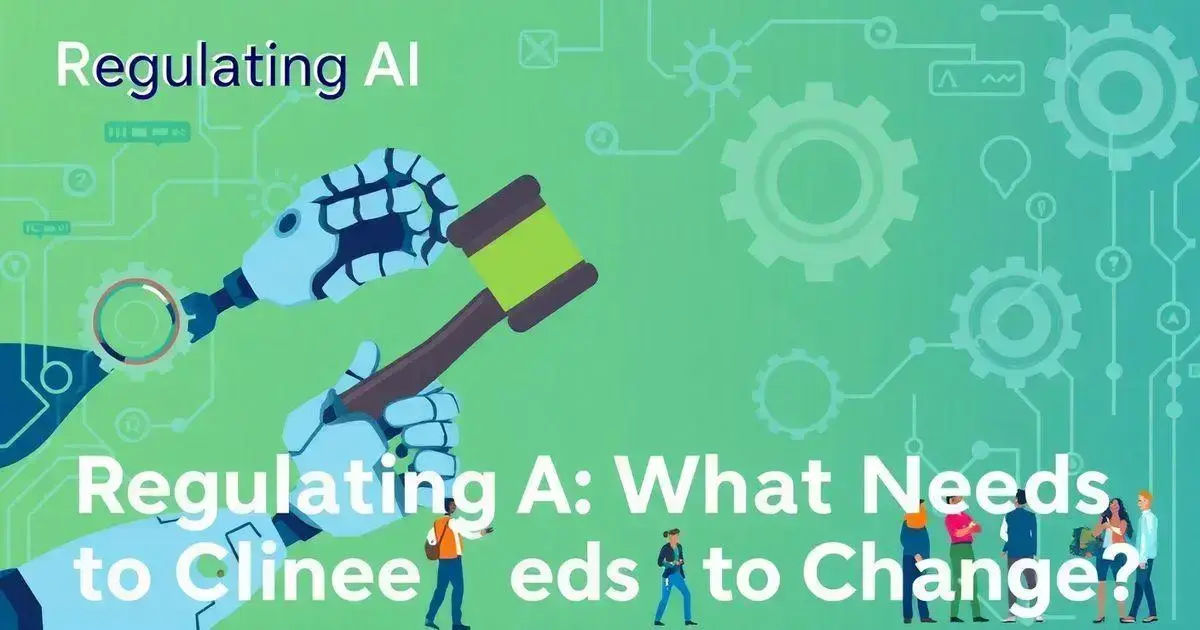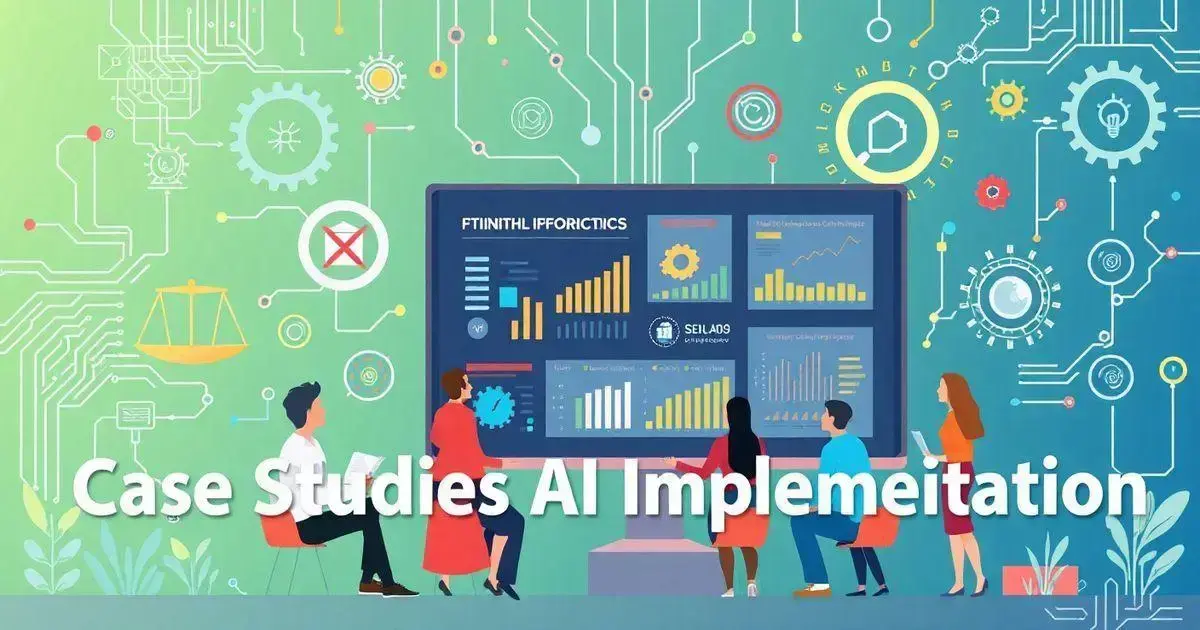Ethical Challenges in AI are reshaping discussions around technology and its impact on society. From addressing algorithmic bias to safeguarding data privacy, these challenges require urgent attention as artificial intelligence becomes more integrated into our daily lives.
With AI influencing sectors like healthcare, finance, and education, the need for ethical frameworks is greater than ever. How do we ensure fairness, transparency, and accountability in these systems?
Understanding these challenges is key to fostering responsible AI development. Continue reading to uncover insights into these critical issues and discover actionable solutions for a more ethical future.
Understanding AI Ethics
Understanding AI Ethics is crucial as artificial intelligence continues to evolve and influence various aspects of society. Addressing Ethical Challenges in AI is a vital part of this process, ensuring that technology aligns with societal values.
AI technology should be designed and deployed with ethical considerations to avoid pitfalls such as bias and invasion of privacy. By tackling Ethical Challenges in AI like these, developers can create systems that operate fairly and transparently, fostering trust between AI systems and the users they serve.
Collaboration among stakeholders, including developers, policymakers, and the public, is essential to overcoming Ethical Challenges in AI. Embracing ethical practices not only ensures that technological advancements benefit everyone but also safeguards fundamental human rights.
The Impact of Bias in AI Systems

Bias in AI systems can significantly affect fairness and decision-making across numerous applications. Understanding this impact is essential for developers and users alike.
When AI algorithms are trained on biased data, they learn and replicate these biases, leading to outcomes that can unfairly disadvantage certain groups. For instance, biased AI systems may produce discriminatory hiring practices or unjust law enforcement actions.
It is critical to implement strategies that promote fairness, such as using diverse datasets and continuously auditing AI systems for biases.
By being vigilant about bias in AI, we can work towards creating systems that are just and equitable, benefiting all individuals in society.
Effective regulation and ethical guidelines are necessary to mitigate these risks and ensure that AI technologies serve everyone fairly.
Privacy Concerns in AI Technology
Privacy concerns in AI technology are increasingly significant as we generate vast amounts of data daily. When AI systems process this data, they often collect sensitive information that can be misused.
Protecting user privacy should be a top priority for AI developers and companies. Implementing strong data protection measures is essential to ensure that personal information is not accessed or shared without consent.
Furthermore, transparency about data usage can help build trust between users and AI technologies. It’s important to educate users about their rights and provide them with tools to control their data.
Responsibility in handling user data is crucial to the ethical implementation of AI, enabling innovation while respecting individual privacy.
Regulating AI: What Needs to Change?

Regulating AI is essential to ensure its development aligns with ethical standards and societal needs, especially in addressing Ethical Challenges in AI. Current regulations often lag behind technological advancements, creating gaps that can be exploited and increasing the risk of unethical practices.
To tackle these issues, new regulations should focus on promoting transparency in AI systems. Companies must disclose how their algorithms function and the data used for training, directly confronting Ethical Challenges in AI like bias and fairness. Accountability is equally critical, requiring developers to take responsibility for the outcomes of their technologies.
Additionally, regulatory bodies must establish clear guidelines on data privacy and security to address Ethical Challenges in AI related to user rights and data misuse. By fostering collaboration between technologists and regulators, we can create a robust framework that protects users while encouraging innovation.
Future Trends in AI Ethics
Future trends in AI ethics are becoming increasingly critical as technology continues to evolve. There will likely be a stronger emphasis on establishing ethical guidelines to govern how AI is developed and applied.
Accountability will emerge as a key pillar of AI governance, requiring companies to take responsibility for the actions and impacts of their AI systems. Collaboration among businesses, governments, and the public will play a vital role in addressing the ethical challenges of AI, fostering shared understanding and solutions.
Additionally, advancements in technologies such as explainable AI will gain momentum, offering greater transparency in decision-making processes. These developments aim to alleviate public concerns around bias, privacy, and the misuse of AI, ultimately paving the way for a more trustworthy and equitable AI landscape.
Case Studies of Ethical AI Implementation

Case studies of ethical AI implementation shed light on how organizations can navigate Ethical Challenges in AI while integrating responsible practices into their systems. One notable example is a major bank that used AI to improve customer service.
By implementing ethical guidelines during the development process, they ensured that their AI systems were transparent and unbiased. Regular audits assessed the AI’s decision-making and addressed Ethical Challenges in AI related to bias and fairness.
Another example involves a healthcare provider employing AI for patient diagnostics. They established a dedicated committee to oversee the ethical implications of AI use, ensuring better patient outcomes and fostering trust in the technology. This approach highlights how addressing Ethical Challenges in AI can lead to more effective and trustworthy systems.
Learning from these case studies underscores the importance of proactive measures in creating responsible AI systems that enhance business operations while safeguarding user rights.
Embracing Ethical AI is Crucial
The journey to implementing ethical AI is ongoing and demands the active involvement of all stakeholders. By prioritizing ethical considerations in AI development and deployment, technology can serve the greater good, enhancing efficiency, promoting fairness, and safeguarding individual rights.
Case studies demonstrate that companies successfully integrating ethics into their AI practices not only gain trust but also achieve more sustainable and impactful outcomes. As we navigate the challenges of AI, fostering collaboration, promoting transparency, and encouraging accountability will be crucial in addressing its ethical complexities.
Remaining committed to ethical standards is not just a necessity but a responsibility. By doing so, we can ensure that AI’s transformative potential benefits everyone equitably and paves the way for a future where technology truly aligns with humanity’s best interests.
